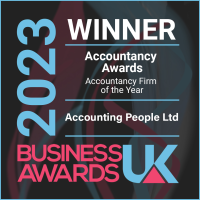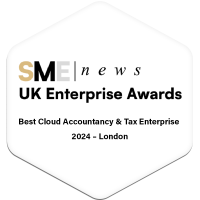If you’re self-employed, you must pay tax through the Self-Assessment system. This guide outlines your legal responsibilities and how the process works.
Telling HMRC You’re Self-Employed
It’s your responsibility to inform HMRC that you’ve started trading and that you need to submit a Self-Assessment tax return.
As a sole trader, you’re legally required to:
- Keep records of your business income and expenses
- File a Self-Assessment tax return annually
- Pay Income Tax on profits, plus Class 2 and Class 4 National Insurance
- Keep receipts for business-related purchases
- Register for VAT if your turnover exceeds £90,000
- Register under the Construction Industry Scheme (CIS) if you’re a contractor or sub-contractor
You can check if you need to file a return and register at GOV.UK.
Do You Need an Accountant?
You don’t need an accountant to file your return, you can do it yourself. However, it’s vital to understand:
- What information must be included
- Key deadlines
- Penalties for late submissions or payments
Missing deadlines can result in fines, so if you’re unsure, professional help is a wise decision.You may need to use MTD compliant software to submit the return if you meet certain conditions as specified in HMRC guidance.
What Income and Expenses Are Included?
You must report all taxable income.
You do not need to report:
- ISA interest
- Premium bond winnings
- Casual gambling profits
You’re entitled to a personal allowance of £12,570 (2024/25).
How Your Income Is Taxed: Order and Rates Explained
Income is taxed in the following order:
- Non-savings income (e.g., salary, self-employment profits, rental income)
- Savings income (e.g. bank interest)
- Dividends
Current income tax rates (2024/25):
- 20% on income up to £37,700
- 40% on £37,701 to £125,140
- 45% on income above £125,141
For dividends:
- First £500 is tax-free
- Then taxed at 8.75% (basic), 33.75% (higher), or 39.35% (additional rate)
What Records Do You Need to Keep?
Self-Employment Income and Expense Records
- Sales and purchase invoices
- Receipts for business expenses (e.g., Purchases, relevant travelling expenses, office supplies etc)
- Business bank statements
- VAT records (if registered)
- Payroll records (if you employ staff)
- Loan agreements and asset purchase details
Keep these safely, records must be stored for several years.
Other Sources of Income:
- P60s (employment income)
- Trade profit calculations
- Interest earned on Savings and investments
- Buy to let rental property income and expenses
- Pension statements
- Dividend vouchers
Deadlines for Filing
The tax year runs from 6 April to 5 April the following year.
Filing deadlines:
- 31 October for paper returns
- 31 January for online submissions
If you’re submitting your first return, inform HMRC by 5 October following the end of the tax year in which you started trading.
Understanding Payments on Account
If less than 80% of your total tax liability from all income sources is collected at source (i.e., through monthly payroll), and your tax liability outstanding exceeds £1,000, HMRC request advanced tax payments to be made for the following tax year in the following order:
- A balancing payment of tax owed for the current tax year ending 5 April
- A first payment on account as an advance payment for the following tax year
- A second advanced payment for the following tax year
Note to advanced tax payments: The two advance tax payments are equivalent to the current year’s tax liability. 50% is payable in January and 50% payable in July.
These advance payments include Class 4 National Insurance but exclude Student Loan repayments and Capital Gains Tax.
Once your final tax bill is calculated, any overpayments are refunded, or underpayments must be settled.
Many small business owners rely on an accountant to manage this, though some use accounting software to do it themselves.
Final Thought: Stay Informed, Stay Compliant
Managing your tax as a sole trader can seem daunting, but staying organised and understanding your responsibilities makes it much easier. Whether you choose to handle it yourself or seek professional help, keeping accurate records and meeting deadlines is key. With the upcoming introduction of Making Tax Digital (MTD), self-employed individuals will also need to maintain digital records and submit quarterly updates to HMRC, making good record-keeping even more important. With the right approach, Self-Assessment and MTD becomes just another part of running your business smoothly.
Let Accounting People Ltd Handle Your Self-Assessment Tax Returns
Tax doesn’t have to be stressful. Whether you’re new to self-employment or an experienced sole trader, Accounting People Ltd is here to help you stay compliant, meet every deadline, and maximise your peace of mind. From Self-Assessment to Making Tax Digital, we’ll guide you every step of the way.
Get in touch today, let’s make tax one less thing to worry about.



